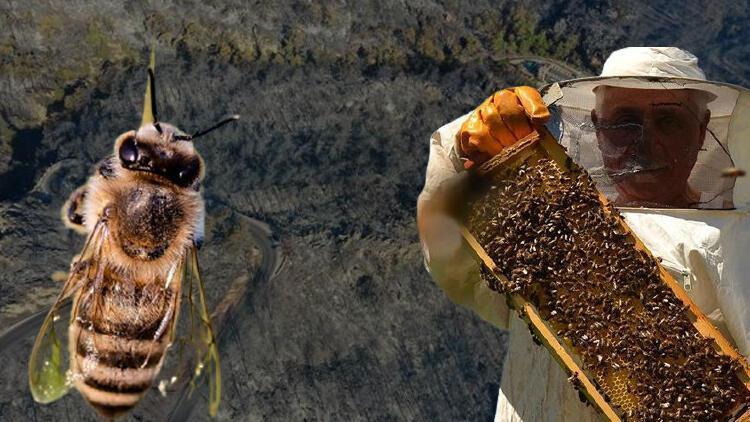
The wildfires ravaging Turkey’s southern and western coastal regions have caused great damage to agricultural fields, farms and apiaries, leaving the world-famous pine honey production at risk in the southern province of Muğla.
Speaking to daily Hürriyet columnist Ertuğrul Özkök, Aslı Elif Tanuğur Samancı, the founder of “Bee & You” beekeeping organization and one of Turkey’s leading beekeeping experts, said an estimated 5,000 beehives in the region burned to ashes.
Stressing that there are approximately 1,200,000 hives in Muğla and nearly 6,000 families survive on beekeeping, the expert said that many bees were lost and houses of many beekeepers burned down in the fires.
The expert also said that the pine honey production would be disrupted as several red pine trees were damaged in forest fires, underlining that honeybees produce pine honey from the secretion of the Basra beetle, a scale insect that lives on red pines.
“In other words, pine honey is produced by honeybees from the secretion of the Basra beetle,” she said, adding that nearly 75 to 80 percent of the pine honey production in Turkey was realized in forested areas on which Basra beetles live in Muğla.
According to Samancı, there is a financial loss of approximately 100 million dollars, depending on the amount of production of pine honey, which is produced in only two countries in the world: Turkey and Greece.
However, the expert is hopeful that the beekeeping industry will be revived. “We hope that as the vegetation in the region regenerates, beekeepers will gradually come back to the region, and the ecosystem will recover again,” she said.
There are 8.2 million bees throughout Turkey, and 3 million to 3.5 million of them come to Muğla every year to make pine honey, according to Turkey Beekeepers Center Union Head Ziya Şahin.